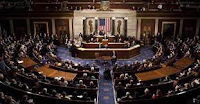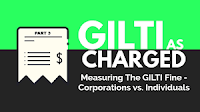The
report, from the Treasury Inspector General for Tax Administration, noted accuracy-related penalties are generally 20 percent of the underpayment of taxes due, and in certain cases, the penalty can be as high as 40 percent. TIGTA reviewed IRS databases for closed business return examinations conducted by the IRS’s Large Business and International (LB&I) Division from fiscal years 2015 through 2017 and identified 519 examinations in which LB&I examiners proposed accuracy-related penalties totaling $1.8 billion.
The IRS’s Office of Appeals worked on and closed 195 of the appealed examinations. They totaled $773 million in proposed penalties, but ultimately the appeals resulted in the elimination or reduction of the proposed penalties for 183 of the 195 returns, totaling $765 million, or the lion’s share of the $773 million in proposed penalties.
IRS systems also identified 4,600 LB&I business return examinations that resulted in additional tax assessments greater than $10,000, for a total of $14 billion of additional tax due. But of these 4,600 returns, only 295 returns (or just about 6 percent) had accuracy-related penalties assessed.

Examiners are supposed to document their reasons for proposing or not proposing penalties and involve their supervisors. But TIGTA’s review of a sampling of 50 business tax returns examined by the LB&I Division with an additional tax assessment of over $10,000 and no accuracy-related penalties showed that in 10 of the cases (that is, 20 percent), the examiners didn’t consider imposing an accuracy-related penalty. In another 10 cases (20 percent), the examiners didn’t justify their decisions not to propose the penalty, while in 13 cases (26 percent), there was no indication that the supervisor approved the decision not to propose the penalty, and in 13 cases (26 percent) with substantial understatements of income tax, there was no indication of supervisory involvement in penalty development.
TIGTA also reviewed a sample of 50 business tax returns examined by LB&I examiners with accuracy‑related penalties assessed. In four of those cases (that is, 8 percent), there was no indication the supervisor approved the decision to propose the penalty, and in three cases (6 percent), there wasn’t any indication that supervisors were actively involved in developing the TIGTA made several recommendations to the IRS on ways to improve the examiners’ accuracy-related penalty decisions. The IRS agreed with four of the five recommendations, and partially agreed with one recommendation.
However, an IRS official objected to some of TIGTA’ s conclusions. “While we agree there are improvements to be made in this area, we disagree with some of the conclusions of the audit,” wrote Douglas W. O’Donnell, commissioner of the IRS’s Large Business and International Division, in response to the report. “Due to the methodology and approach of this audit, we do not believe that some of the overall conclusions are supported. Each examination and the facts and circumstances of an individual case stand on their own.”

Contact the Tax Lawyers at
Marini & Associates, P.A.
for a FREE Tax Consultation Contact US at
or Toll Free at 888-8TaxAid (888 882-9243).

 Examiners are supposed to document their reasons for proposing or not proposing penalties and involve their supervisors. But TIGTA’s review of a sampling of 50 business tax returns examined by the LB&I Division with an additional tax assessment of over $10,000 and no accuracy-related penalties showed that in 10 of the cases (that is, 20 percent), the examiners didn’t consider imposing an accuracy-related penalty. In another 10 cases (20 percent), the examiners didn’t justify their decisions not to propose the penalty, while in 13 cases (26 percent), there was no indication that the supervisor approved the decision not to propose the penalty, and in 13 cases (26 percent) with substantial understatements of income tax, there was no indication of supervisory involvement in penalty development.
Examiners are supposed to document their reasons for proposing or not proposing penalties and involve their supervisors. But TIGTA’s review of a sampling of 50 business tax returns examined by the LB&I Division with an additional tax assessment of over $10,000 and no accuracy-related penalties showed that in 10 of the cases (that is, 20 percent), the examiners didn’t consider imposing an accuracy-related penalty. In another 10 cases (20 percent), the examiners didn’t justify their decisions not to propose the penalty, while in 13 cases (26 percent), there was no indication that the supervisor approved the decision not to propose the penalty, and in 13 cases (26 percent) with substantial understatements of income tax, there was no indication of supervisory involvement in penalty development.













